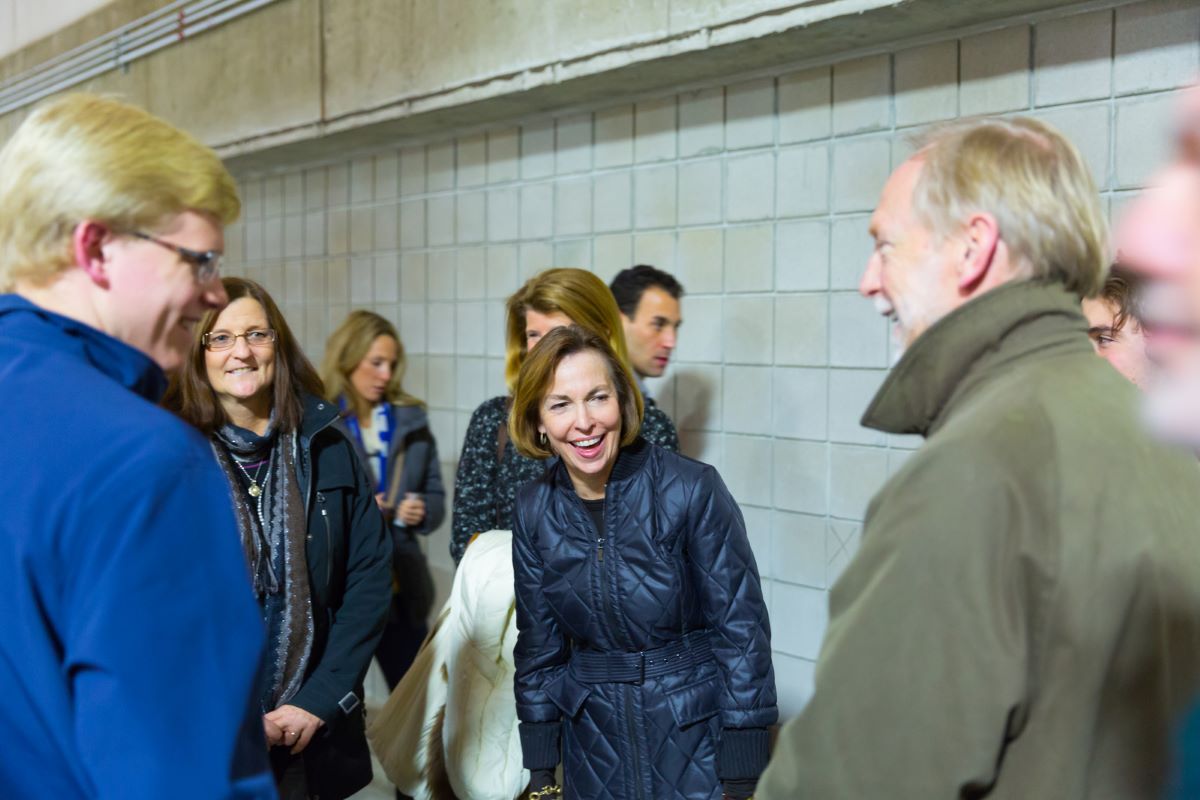
At my university, I am often asked a variation of the same question at numerous events: how important is it to pick the perfect major and carefully plan a career path?
And while there are certainly are some professions that require special training and preparation, I think I surprise many people when I tell them that I see tremendous value in not always having a plan and being open to change. What I remind students and parents, and even those who are already in the working world, is that it’s far better to follow your passions, not a pre-determined career plan. Know what you love to do and what makes you happy, then use that as a guide in going after that first job, and the next one, as you continue in your career. I can’t underscore enough the importance of being open to change and embracing new opportunities and challenges. Most successful career paths come with unexpected curves. And, each new job does not need to be a step up to the next rung of the ladder—as Fortune’s Pattie Sellers describes it, think of your career as a jungle gym, with multiple paths over and up. When your passion leads you to explore another industry or position, lateral moves may open up new doors and a whole new career.
I can’t underscore enough the importance of being open to change and embracing new opportunities and challenges. Most successful career paths come with unexpected curves. And, each new job does not need to be a step up to the next rung of the ladder—as Fortune’s Pattie Sellers describes it, think of your career as a jungle gym, with multiple paths over and up. When your passion leads you to explore another industry or position, lateral moves may open up new doors and a whole new career.
My own trajectory emphasizes the benefit of considering new career paths—multiple times over. When I graduated from law school, most of my classmates joined well-known law firms. But during my time in school, I had the opportunity to work on pro bono mental health and environment projects, which fueled my passion to serve the public interest. After graduating, I took that route and ran a statewide program that provided legal services to low-income elderly. The job was incredibly satisfying and I gained tremendous confidence from the responsibilities and opportunities that came with it.
From there, I was selected to work for one of five commissioners at the Federal Trade Commission in Washington. Having one of the few women serving at the time in a high-level government post act as my mentor helped affirm the unorthodox choices I was making. This job further clarified my passion for civic service. Through a combination of hard work and taking on the most unexpected of roles, I’ve since had the good fortune to work as the secretary of economic affairs for a Massachusetts governor, as a partner at a leading national law firm where I focused on regulatory and business development issues, and now as the first female president of a global business university.
Follow your interests, not a strict plan, to find true career satisfaction, says Pres. Gloria Larson
TWEET THIS
As I gained new levels of responsibility over the course of my career, I worked hard to hone critical skills such as collaboration, public speaking, working with diverse personalities, and problem solving—all of which helped me succeed. I’m a firm believer in merging these so-called “soft skills” with professional or technical knowledge. For me, it was combining soft skills with my passion: legal expertise. For someone else, that passion might be data analytics or application design. The integration of these hybrid skills will allow any talented individual to get ahead in their field of choice.
Whatever the right combination is, the need for a deep and varied skill set is in demand and growing. A study recently commissioned by Bentley University found that employers today are looking for candidates who are versatile and possess multiple talents. More important than having a set plan, think about the competencies you will need to master in order to continue following your interests and the next phase of professional growth. Each position I held allowed me to develop new skills that led to my next career opportunity, all while staying true to my passion to serve the public interest.
Today's companies are looking for versatile, flexible candidates w/wide ranging skills #preparedu
TWEET THIS
As someone who came to higher education leadership via a less traditional route, mine is a strong case for keeping an open mind about your career. For me, a personal turning point happened while working at my law firm. That’s when I had the opportunity to work with millennials and experienced first-hand this generation’s holistic way of thinking and their optimistic approach to finding their way in the world.
Now, ten years into my most recent “new” career at Bentley and in an industry I never expected to join, higher education, I could not be happier with my decision. Every twist, turn, and zigzag over my career seems almost unimaginable to my 18-year-old self. But I’m forever committed to pursuing my passions—it’s been a very effective guiding compass for over forty years.

